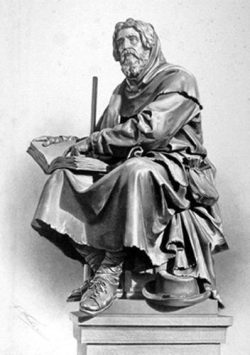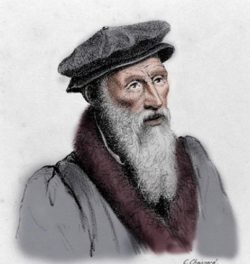Pierre Valdo (1140-1217)
and the Waldenses
Pierre Valdo started the Waldenses movement, which spread throughout southern Europe.
Return to the Gospel
Pierre Valdo,Vaudès or Valdès was a rich merchant from Lyons, who, deeply touched after reading the Gospel, sold all his goods in order to lead a simple life of poverty, as a preacher. He had a translation of Biblical texts made into vernacular language.
He had many followers, called Waldenses. Valdo did not manage to get permission from the pope for lay people to preach. The Waldenses were excommunicated at the council of Verona (1184).
In spite of persecution, the Waldensian movement continued to expand in France, Italy, Germany and as far as Hungary and Poland.
The Waldensian theology
The Waldenses disagreed with the catholic Church on the following points :
- evangelical radicalism, based on the ‘sermon on the mount‘ which led them to refuse to take the oath of civil obedience ;
- they contested the institutional Church of Rome : they were against the papacy and also the power and wealth of the Church ;
- they rejected purgatory and indulgences together with the cult of saints ;
- they believed in travelling preachers : preaching was carried out by laymen called « Barbes » (« uncle » in piedmontese, that is to say, an elder). They were unmarried. They had trades which forced them to travel frequently. Because of persecution, preaching was done in private houses and not in the public square.
However, the Waldenses took part in mass and the sacraments of the catholic Church.
The Waldenses joined the Reformation
In 1526 the elders, gathered together in a synod, decided to send two delegates to Switzerland and Germany to enquire into Luther’s new doctrines. They came back with books by Luther and Zwingli.
Other envoys were sent in 1530 to Reformers in Neuchâtel, Berne, Basel and Strasbourg, with a questionnnaire. The replies of d’Oecolampade and Bucer are well-known.
They agreed on main points, but there were differences over :
- the ministry of itinerant preachers (the Barbes)
- the interpretation of the Sermon on the Mount, which led the Waldenses to refuse to take the oath of civil obedience,
- protest against civil power,
- participation in the mass and Catholic sacraments.
In 1532, at the synod of Chanforan, in the Waldensian valleys, the reformer Guillaume Farel was present. His influence was decisive. He made the synod take a definite stand in favour of the ideas of the Reformation.
The itinerant ministry of the preachers was stopped. Most preachers became pastors and the places they visited became centres for reformed churches.
At the same time, the synod of Chanforan decided to spend 500 gold crowns on a translation of the Bible into French, which was entrusted to Olivétan.
The Waldensian Churches today
Although they have been badly persecuted in the past, especially during the massacre in the Luberon area in 1545, there are Waldensian communities which still exist in the alpine valleys and in Italy today. They have even developed as far away as Uruguay.
The Waldensian Churches have belonged to the Ecumenical Council of Churches since its foundation.
Pierre Valdo (1140-1217)
and the Waldenses
Via Beckwith, 3, Torre Pellice, Turin, Italie
Bibliography
- Books
- AUDISIO, Gabriel (éd.), Les Vaudois des origines à leur fin (XIIe-XVIe s.), actes du colloque d'Aix en Provence (avril 1988), A. Meynier, Turin, 1990
- JALLA Jean, Pierre Valdo, Vida, 2003
- LE GOFF Jacques (éd.), Hérésies et sociétés dans l’Europe préindustrielle, XIe – XVIIIe siècle, Mouton, Paris-La Haye, 1968
- SANTINI Luigi, De Pierre Valdo à l’Église vaudoise, Labor et Fides, 1999
- THOUZELLIER Christine, Hérésie et hérétiques : Vaudois, Patarins, Albigeois, Rome, 1969
Associated tours
-
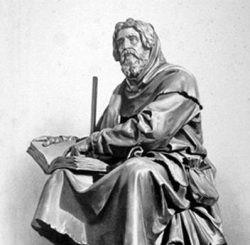
Forerunners of the Reformation
Long before Luther and Calvin others worked towards a reformation of the Catholic Church. Throughout the Middle-Ages there were constant movements calling for reformation, some were absorbed by the Catholic...
Associated notes
-
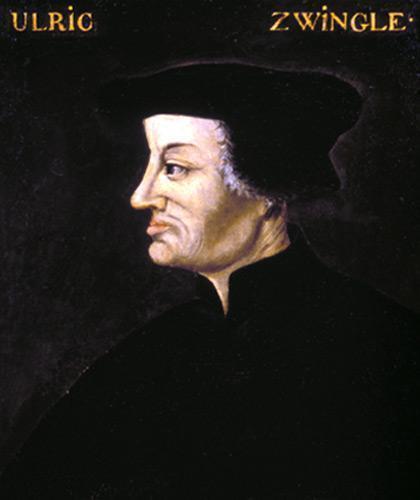
Ulrich Zwingli (1484-1531)
Zwingli, a pastor and theologian, based the Reformation on Bible study. In his opinion the Reformation comprised fighting social injustice. -
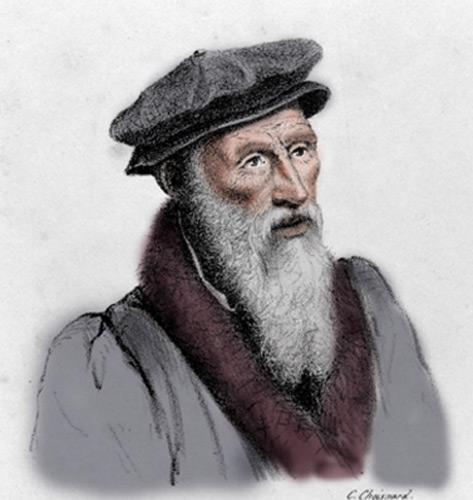
Guillaume Farel (1489-1565)
Farel was the reformer of French-speaking Switzerland, precisely in the Neuchâtel area. He was a preacher but also an organiser and author of a liturgy in French. -
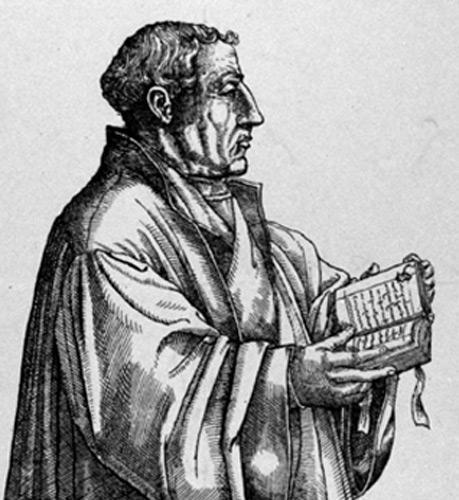
Martin Bucer (1491-1551)
He was born in Alsace, was a humanist and tried all his life long to safeguard the unity of the Church. -
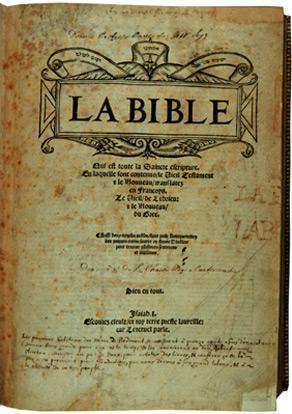
Olivétan (1506-1538)
Olivétan is well-known for his French translation of the Bible, referred to as Olivétan’s Bible. It was the first Bible ever to be translated into French from the original Hebrew... -
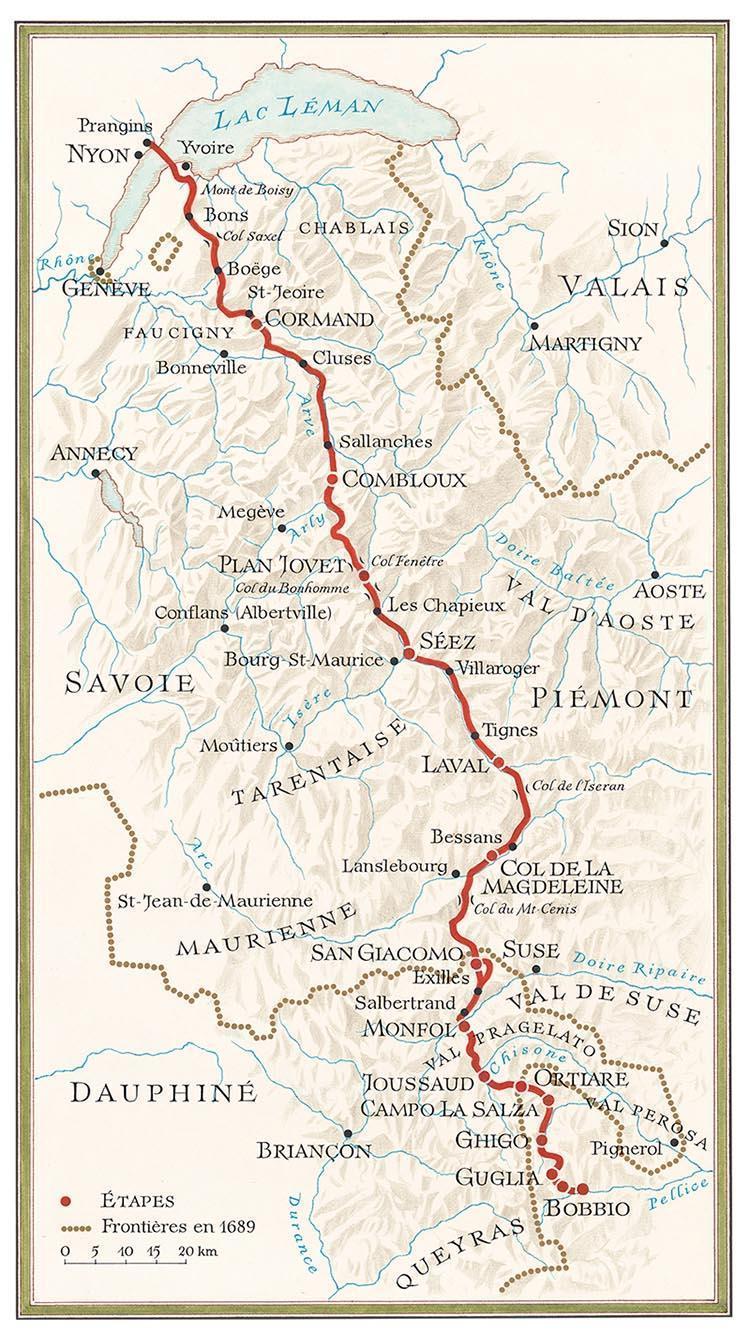
A History of the Waldensians
The Waldensian movement started in Lyon towards the end of the 12th century and spread throughout Europe in the Middle Ages. It joined with the Reform Movement and they were... -
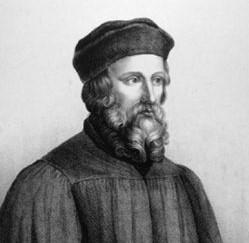
Jan Hus (1369-1415) and the Hussite wars (1419-1436)
Hus was a Czech priest, who, a century before Luther, called for a reform of the Chuch and was burnt at the stake. His death set off a religious, political... -
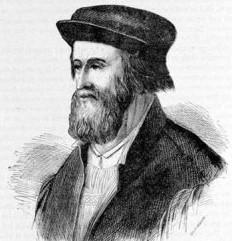
John Wyclif (c. 1328-1384) and the Lollards
Wyclif, a distant precursor of the Reformation, challenged the Church’s authority and hierarchy. His followers, the Lollards, instigated a peasant revolt. They denounced the established Church. -

Forerunners of the Reformation
The Forerunners of the Reformation developed many ideas which inspired Luther. Among them Pierre Valdo was the first, in the XIIth century. -
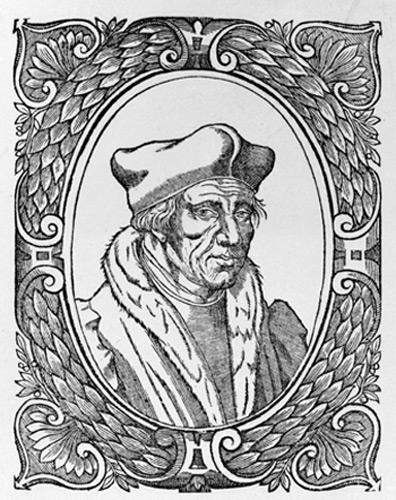
Jacques Lefèvre d'Etaples (1450-1537)
Jacques Lefèvre d’Etaples was a theologian who founded the “Cenacle of Meaux” and was the first to translate the Bible into French. -

Christianity in the West in 16th century
At the beginning of the 16th century, the Church of Rome had been in a state of moral and political crisis for two centuries, but had not managed to overcome...

